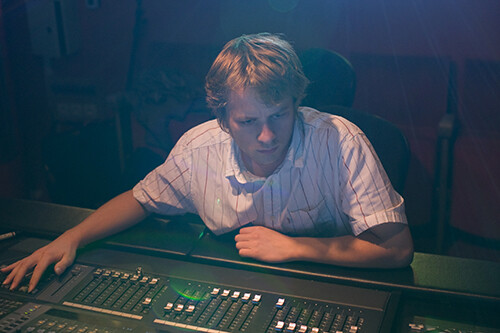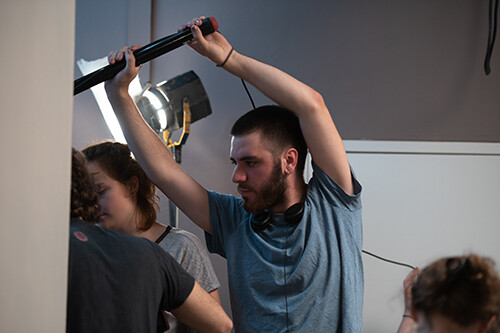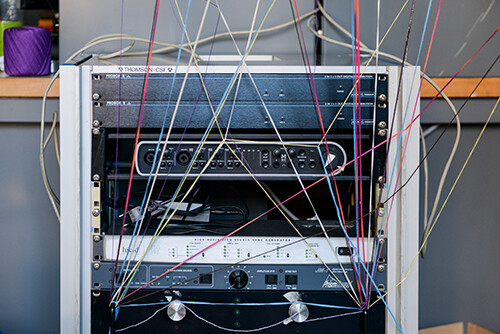The Masters in Sound
This is the only Master's degree available in France covering all technical sound knowledge and skills related to the image (cinema, television), music, live performance, radio and video games sectors.
Objectives
The ambition of the ENS Louis-Lumière’s Sound curriculum is to offer all students a solid training in the different fields of sound: sound in the image (cinema, audiovisual), music, live performance, radio, sound art.
This generalist approach has proven virtues, allowing graduates a wide range of skills, great adaptability to technological developments and the flexibility to make them valued employees in the professional world.
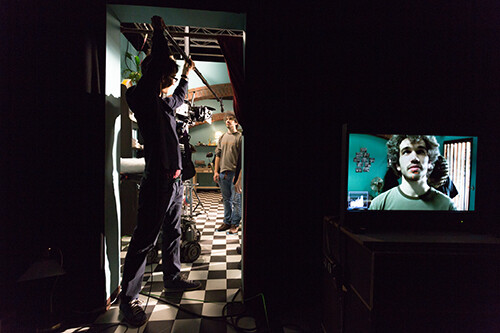
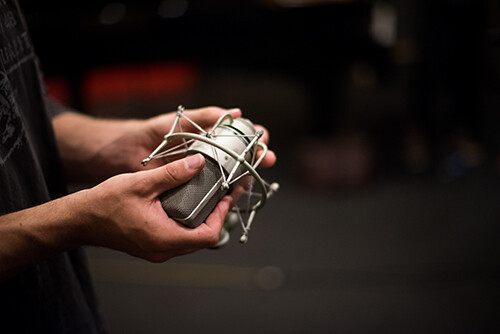
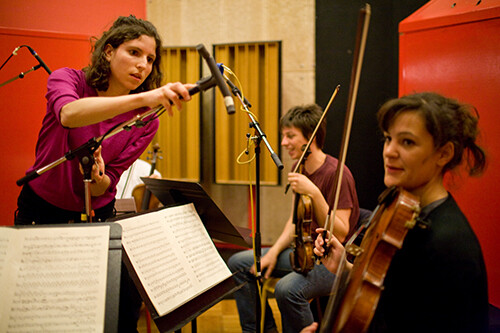
Principles
The common core
The Common Core is for all Sound students, occupies the whole of the first year (Bachelor 3 level), and continues during the two years of the Master’s programme alongside optional courses. It is designed to give students solid knowledge in all areas of sound, and is divided into three stages:
- The science and technology part of the course aims to provide an in-depth understanding of theoretical foundations related to sound phenomena, both in their natural dimension (acoustics and psychoacoustics), and through the technologies dedicated to their transmission and reproduction (applied electronics, electroacoustics, analogue and digital systems, signal processing, etc.).
- The fundamentals related to instrumental practices cover all the fields of the professions in which the School trains: sound recording, editing and mixing for the cinema, radio creation, recording and mixing of classical and contemporary music, concert sound systems, etc. This concerns the handling of the tools and methodology specific to each discipline.
- Projects complete and exemplify the learning of the tools, giving students the opportunity to strengthen their practice and link it to creation, in regular contact with the Cinema Master’s programme, or with outside artists in the case of music recording and radio drama.
3 Options :
Sound in Picture
This option focuses on cinema (fiction, documentary and animation) and on other audiovisual areas including video games and virtual reality.
The ambition of this specialisation is to enable students to acquire a solid mastery of traditional professions (sound engineer, boom, sound editing, mixing…) and the key methods associated with them, adding the challenge to to extend them through reflection on innovative practice (extended multi-channel, object mixing, audiovisual immersion…).
Each module offers an opportunity to put the skills acquired at the service of projects in common with the Master’s in Cinema and external partners (Ecole des Gobelins, University of Paris VII, etc.). This provides a place to question and develop links between sound creation and the visual object, to understand their their interactions and the choices of writing, narration and staging.
Sound Arts
This specialisation is focused on the world of sound creation. Its aim is to train students in the technical and aesthetic aspects of sound installations, electroacoustic music, scenography, live performance and interactive media.
A strong orientation is given to research and experimentation through the practice of innovative sound devices, whether in the field of sound spatialization (writing sound space, object mixing, practice of 3D audio systems), virtual reality or real-time interactivity (computer science and audio and multimedia programming, management of sensors and actuators, sound synthesis, network communication…).
This option is enriched by cross-disciplinary projects with the Master’s degree in Photography, image-sound exhibition (sound and interactive scenographic installation, etc.).
Sonorisation
Students who choose this specialisation are on a path to becoming experts in the fields of sound diffusion. They must acquire the skills that will enable them to design and implement complex and large-scale sound devices, possibly interactive and innovative, in line with an artistic objective and a specific delivery space.
During the two years, technical courses (engineering, digital audio networks, intercommunication, setting up broadcasting systems, etc.) and theoretical courses (electronics and electroacoustics, room acoustics, signal processing, etc.) are offered, with numerous professional scenarios, ranging from a one-day exercise to complex projects whose design can be spread over several months (show sound systems, technical and logistical implementation of a contemporary music festival). Students are thus able to gain solid experience through a variety of practical challenges, and thanks to partnerships with contemporary music venues and creative venues.
